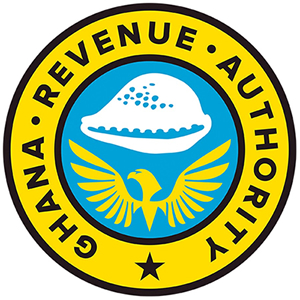


The Ministry of Finance of has uncovered import activities that fit into acts noted as illicit financial flows. The government has found after an assessment of import transactions over five years that an amount of $31 billion was transferred out of the country for the importation of goods, but no goods were brought into the country after the transfers.
One of the common ways known for illicit financial flows has been trade misinvoicing. A number of analysis of trade data, including by the Global Financial Integrity has shown that countries like Ghana lose money to illicit financial flows through trade misinvoicing.
Dr Akinwumi Adesina, the former President of the African Development Bank (AfDB) has said that corruption and illicit financial flows are costing Africa several billion dollars. He said every single day the continent loses a total of $1.6 billion, culminating into losses amounting to $580 billion every year. According to estimates by the AfDB Africa loses about $1.6 billion daily to what it termed “financial leakages.”
Dr Adesina told Bloomberg in an interview that the annual losses are undermining growth and worsening Africa’s nearly $2 trillion debt burden. He said the continent loses about $1.6 billion daily in “financial leakages,” including $90 billion in illicit financial flows, $275 billion through profit-shifting by multinationals, and $148 billion from corruption.
In the budget statement presented to Parliament yesterday November 13, 2025, the Minister of Finance, Dr Ato Forson revealed that there has been an abuse of the Import Declaration Forms (IDFs) tool. According to the Minister, the IDFs, was a tool meant to support legitimate trade but now hijacked for illicit transfers and tax evasion.
According to Dr Forson, the irregularities uncovered include: Importers transferring funds abroad in the name of importation with no goods brought in; Importers remitting more than the actual value of goods imported; and banks approving transfers above the $200,000 limit set by the Bank of Ghana without submitting supporting documentation.
“Between April 2020 and August 2025, over 525,000 transactions amounting to an equivalent of $83 billion were processed through the Integrated Customs Management System (ICUMS). Surprisingly, only 10,440 of these transactions were linked to actual imports. An equivalent of $31 billion in transactions were transferred abroad with no goods imported at all,” he said.
He added: “This leak has bled our reserves, weakened the Ghana cedi and deprived the economy of resources that should have built schools, roads and hospitals.”
The Minister noted further that the audit also revealed that some importers under-declared values to hide about GH¢76 billion in imports, denying Ghana about GH¢11 billion in potential revenue.
Other importers inflated transfers values, aided by some banks that ignored the $200,000.00 ceiling set by the Bank of Ghana. Over 17,700 IDF applications broke these limits, channelling an equivalent of about $20 billion in unverified transfers out of Ghana.
“This was not a loophole; it was an organised system of exploitation. In fact, an organized crime,” the Minister said.
According to the Minister the individuals and institutions behind the activity are being referred to the Attorney-General, Economic and Organised Crime Office, the Financial Intelligence Centre and the Criminal Investigations Department of the Ghana Police.
He also said, the Ghana Revenue Authority will establish a special recovery unit to reclaim lost revenue. Indicating that the government has acted decisively. He said an Inter-Agency Committee will now audit all import-related transfers going forward, and the Bank of Ghana will also match every forex transfer with verified import data.
“Government remains fully committed to upholding the integrity of the import system and enforcing accountability to ensure every dollar sent abroad is matched by genuine economic value for the Ghanaian people,” he said.
By Emmanuel K Dogbevi
The post Illicit financial flows: $31b import transactions made in Ghana but no goods were brought in appeared first on Ghana Business News.
Read Full Story

























Facebook
Twitter
Pinterest
Instagram
Google+
YouTube
LinkedIn
RSS